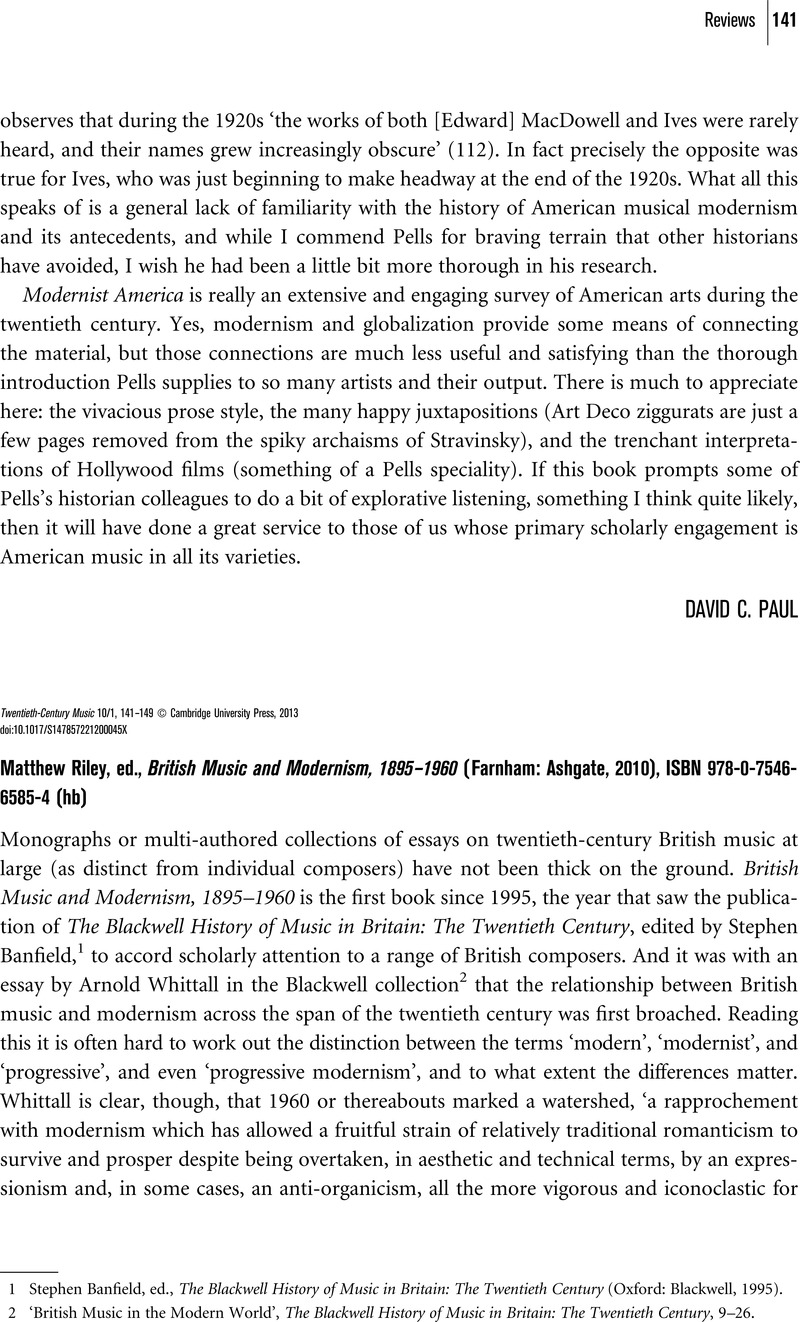No CrossRef data available.
Published online by Cambridge University Press: 27 March 2013

1 Banfield, Stephen, ed., The Blackwell History of Music in Britain: The Twentieth Century (Oxford: Blackwell, 1995)Google Scholar.
2 ‘British Music in the Modern World’, The Blackwell History of Music in Britain: The Twentieth Century, 9–26.
3 ‘British Music in the Modern World’, 18.
4 Harper-Scott, J. P. E., Edward Elgar, Modernist (Cambridge: Cambridge University Press, 2006)CrossRefGoogle Scholar.
5 The programme announcement is archived at <http://goldenpages.jpehs.co.uk/static/conferencearchive/06-5-brm.html>.
6 The proceedings were recorded (video and audio) and are archived at <www.gresham.ac.uk/lectures-and-events/elgar-and-musical-modernism>.
7 The programme is archived at <www.rma.ac.uk/conferences/event.asp?id=110>.
8 See Dibble, Jeremy, C. Hubert H. Parry: His Life and Music, 2nd edn (Oxford: Clarendon, 1998)Google Scholar and Charles Villiers Stanford – Man and Musician (Oxford: Oxford University Press, 2002).
9 Peter Evans, ‘Instrumental Music I’, in The Blackwell History of Music in Britain, 197–277 (182).
10 ‘Instrumental Music I’, 182.
11 A quick scan of iTunes and Naxos Online suggests that a soprano is always used in recordings, but I have heard a concert performance with a tenor.
12 Harper-Scott, J. P. E., ‘Elgar's Deconstruction of the Belle Epoque: Interlace Structures and the Second Symphony’, in Elgar Studies, ed. Harper-Scott, J. P. E and Rushton, Julian (Cambridge: Cambridge University Press, 2007)Google Scholar, and ‘“Our True North”: Walton's First Symphony, Sibelianism, and the Nationalization of Modernism in England’, Music & Letters 98/4 (2008), 562–89.
13 ‘Instrumental Music I’, 185.